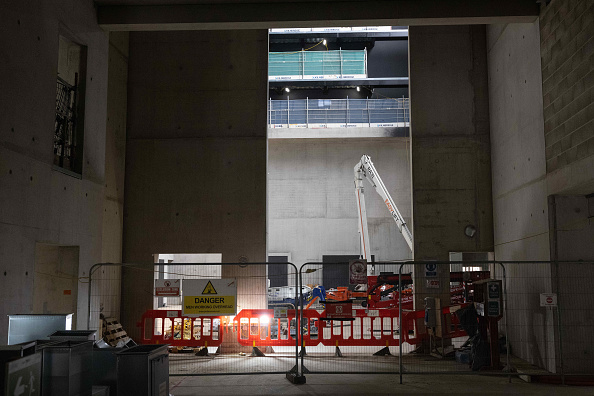Construction in the City will be sabotaged by a skill shortage without a long-term plan

Two of the biggest long-term challenges we face are climate change and the labour market. The problems are well-known: holding to 1.5 degrees increase from pre-industrial levels and a shortage of appropriately skilled labour.
For too long, problems such as these have been viewed in isolation, rather than stepping back to see the bigger picture and how they are interlinked. This creates a spiral of short-termism, where we constantly tackle problems that have been exacerbated through a neglect of horizon-scanning and adequate preparation.
This is not a new problem. Whether it is the age-old maxim, “fail to plan and you plan to fail”, or, as Sir David Attenborough eloquently described, “A tale of the smartest species doomed by that all too human characteristic of failing to see the bigger picture in pursuit of short-term goals.”
Today, the City of London Corporation is launching a major project that seeks to overcome the short-termism spiral and siloed thinking with an initiative to tackle both climate change and the labour shortage: the Skills for a Sustainable Skyline Taskforce.
Central government wants the country to reach net zero by 2050; in the Square Mile we have a bolder target of 2040. And so we need to be more agile in our thinking, more adept in our problem-solving, and more ambitious in our work.
The City is a global centre for commercial real estate; our world-famous landscape is defined by it. We account for almost one-in-ten non-domestic premises in England and one-quarter of its rateable value. Given that the built environment accounts for almost one-quarter of greenhouse gas emissions, this is a prime area to focus our climate efforts.
But it is one thing knowing the problem, it is quite another having the tools to provide a solution.
Across the City, the capital, and indeed the country, there is a significant labour shortage in the building trade. Last year, 60 per cent of construction firms struggled to fill vacancies. This systemic problem will only deepen in the future. According to the Institute of Public Policy Research 750,000 construction workers are expected to leave the sector or be near retirement in the next 15 years.
For the City, the problem is amplified by a shortage of skilled labour to help the built environment transition to net zero. Despite a plethora of broad training qualifications available, 91 per cent of those surveyed as part of our initial investigations said the commercial built environment sector lacked sufficient skilled workers to achieve net zero targets.
There is a clear need for an urgent injection of new skills in the workforce, as well as in the talent pipeline.
The Skills for a Sustainable Skyline Taskforce will today gather over 100 leading figures from across government, industry, and training providers to bring about change. We must develop a detailed evidence base on the problems outlined, generate an appropriate response, and engage the current and future workforce to create a talent pipeline.
This will not be an overnight change – long-term challenges require long-term solutions – but this is the beginning of a transformative pathway. One that places the environment at the heart of our labour market and the labour market at the heart of our environment.
